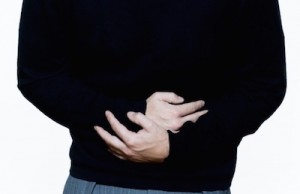The FDA is warning consumers that some over-the-counter (OTC) laxatives could be potentially dangerous if dosing instructions and warnings on the label aren’t followed. Some people can become ill taking laxatives if they have certain health conditions. There have been dozens of reports of serious side effects, including 13 deaths, associated with the use of sodium phosphate laxatives.
 The label of sodium phosphate laxatives says it is a single dose product, taken only once a day, and should not be used for more than three days. If you don’t have a bowel movement after taking a dose, don’t take another dose.
The label of sodium phosphate laxatives says it is a single dose product, taken only once a day, and should not be used for more than three days. If you don’t have a bowel movement after taking a dose, don’t take another dose.
If you have kidney disease, heart problems, or dehydration, don’t take laxatives without checking with your doctor first. Anyone taking diuretics, fluid medicines, ACE inhibitors, angiotensin receptor blockers for high blood pressure, heart, or kidney failure, or nonsteroidal anti-inflammatory drugs (NSAIDs) such as ibuprofen, or has colon inflammation should check with a doctor before taking an OTC laxative.
The most serious problems occurred after consumers overdosed by taking a single dose higher than the recommended amount, or took more than one dose per day. Dr. Mona Khurana, a medical officer in FDA’s Division of Nonprescription Regulation Development and a pediatric nephrologist said, “the bottom line is that these products are safe for otherwise healthy adults and older children for whom dosing instructions are provided on the Drug Facts label as long as they follow these dosing instructions and don’t take the product more often, or in greater amounts, than the label instructs.”
Laxatives should only be given to children under the age of 5 under direction and care of a doctor. Avoid rectal use of these products in children under the age of 2.
The warning signs of a bad reaction include a rectal dose that is retained and doesn’t produce a bowel movement. Dehydration is another symptom of a problem. Symptoms of dehydration include dry mouth, thirst, reduced urine output, and lightheadedness. If the rectal dose is retained more than 30 minutes, contact a doctor right away. The symptoms of kidney injury include drowsiness, sluggishness, a decreased amount of urine, or swelling of the ankles, feet, and legs.




